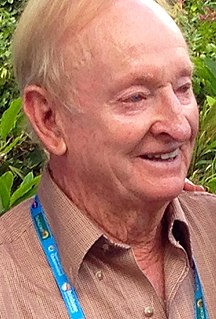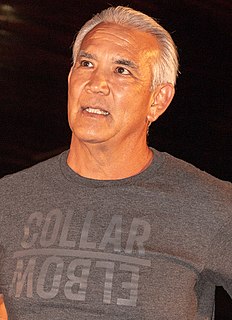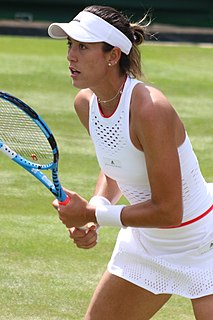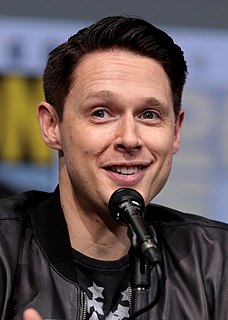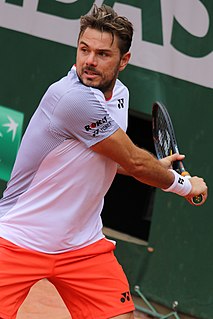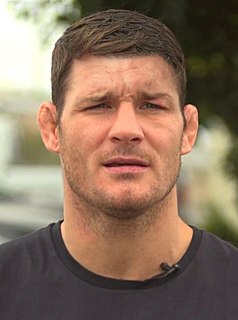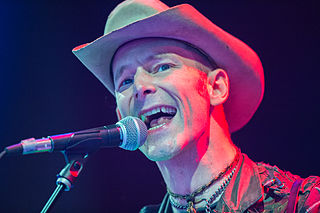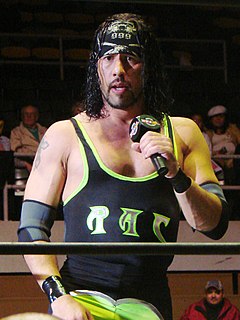A Quote by Rod Laver
Staying interested in a match is a lot harder than many people think. Throughout my career, I've always had trouble in the early rounds of a tournament mainly because it was hard for me to psychologically get up until I got to the quarters or the semis. What happened a lot of times is that I would fall behind early, maybe even lose the first couple of sets in a five-set match and then begin to concentrate. Still it wasn't something I could control from the start.
Quote Topics
Always
Because
Begin
Behind
Career
Concentrate
Control
Could
Couple
Early
Even
Fall
First
Five
Get
Get Up
Got
Had
Happened
Hard
Harder
Interested
Lose
Lot
Mainly
Many
Match
Maybe
Me
People
Psychologically
Quarters
Rounds
Set
Sets
Something
Start
Staying
Still
Than
Then
Think
Throughout
Times
Tournament
Trouble
Until
Up
Would
Related Quotes
A lot of times we would feed off of the crowd. A lot of things that we were doing in the match was called on the fly. For example, Ric Flair and I would go into a match and have a couple of spots and moments set up. And then, of course, we would line up the finish. But the rest was called on the fly.
I used to either lose in my first or second match or I would go very far in the tournament. So I've been saying to myself, 'Come on, you've got to get through these first two matches. They're very tough. Because afterwards you feel different.' So I'm really putting my energy into getting through to those later rounds.
He read a lot. He used a lot of big words. I think maybe part of what got him into trouble was that he did too much thinking. Sometimes he tried too hard to make sense of the world, to figure out why people were bad to each other so often. A couple of times I tried to tell him it was a mistake to get too deep into that kind of stuff, but Alex got stuck on things. He always had to know the absolute right answer before he could go on to the next thing.
It's a lot harder to keep your cool than it is to lose it. That's on any work ethic. Even if you're a big producer on a movie set, or whatever, it's a lot harder to be a pro than be a baby on your crew. That's one work ethic to keep in mind, as one bad apple could give five people a bad day, when that one person could've stepped up their own efforts a little more and not bring anyone else down.
I recalled how much time i had spent fighting for something i didn't even want. maybe because i had been too lazy to think of other avenues to follow. maybe because i had been afraid of what others would think. maybe because it was hard work to be different. perhaps, because a human being is condemned to repeat the steps taken by the previous generation until a certain number of people begin to behave in a different fashion. then the world changes, and we change with it.
When a drug comes out [that's broadly prescribed] there are going to start to be a lot of people on it [in a million person cohort] and you might get therefore an early signal of something unexpected that hadn't come through in the clinical trials. And I'm sure [drug companies] would love it if, in fact, FDA, recognizing that, would say, OK, maybe you don't have to do your trial with 30,000 people because we're going to find out shortly after registration because we'll have a lot of people taking the drug and we'll be able to see what happened using PMI.
I think I was very lucky that I didn't get well-known until my early thirties. If it had happened when I was younger, you might have seen me falling out of nightclubs. I think I conducted myself as a much better human being because I was already married when all that came along (I got married five months after I got the role as Will).
There were a lot of days when I thought maybe this isn't what I should be doing. There've been a lot of days where you get to the point where you're like, "I don't know if I've got the will to even do this." It's the type of game that doesn't let you walk away so that's what happened, I just kept coming back to it until something really happened for me.
